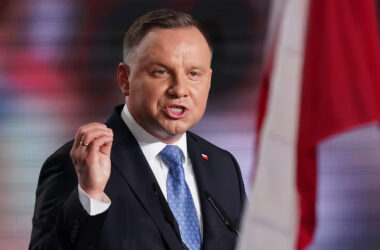To stop the anti-globalist Freedom Party of Austria (FPÖ), which won the parliamentary election in September, from taking power, the heads of Austria’s Conservative People’s Party (ÖVP), the Socialists (SPÖ), and the Liberal Neos announced formal negotiations on November 18 to form a ruling coalition.
Prior to this, ÖVP and SPÖ had engaged in informal talks for weeks, but now, they’re diving into structured discussions across subgroups.
Austrian Chancellor and ÖVP leader Karl Nehammer stressed the need for “a stable and democratically legitimate government with a clear majority in parliament.” However, he acknowledged the tough road ahead, given the significant ideological rifts between the parties. While the ÖVP positions itself as socially conservative and economically liberal, it faces criticism for ballooning Austria’s federal deficit during its last five years in power.
The SPÖ, led by the self-declared “Marxist” Andreas Babler, has shifted further left, with proposals for increased spending and open-border policies—stances at odds with the ÖVP’s tougher immigration approach. After a disappointing election result for both the ÖVP and SPÖ, the FPÖ emerged as the election’s big winner, taking 29 percent of the vote—yet it’s been rejected by all other parties.
FPÖ officials slammed the emerging coalition, calling November 18 “a black day for democracy in Austria.” They claimed that it was essentially a power grab to secure Nehammer’s job, with Michael Schnedlitz, FPÖ’s general secretary, accusing the coalition of undermining the country’s future.
Before the election, Nehammer had ruled out working with FPÖ leader Herbert Kickl, accusing him of “right-wing extremism” and “conspiracy-mongering.” After the election, Nehammer turned down Kickl’s proposal to negotiate policy first and leave personnel issues aside, opting instead to court the SPÖ.
Critics within the ÖVP now argue that Nehammer has compromised the party’s values to stay in power. With ÖVP and SPÖ holding only a slim majority in parliament, they’ve turned to the Liberal Neos to secure a third partner in this coalition. The Neos, known for advocating economic liberalism, have also shown flexibility in working with the SPÖ at the local level.
As negotiations progress, Neos leader Beate Meinl-Reisinger is reportedly eyeing the position of finance minister. However, no concrete agreements or timelines have been set, with many expecting a delay in major announcements until after the regional elections in Styria on November 25.




